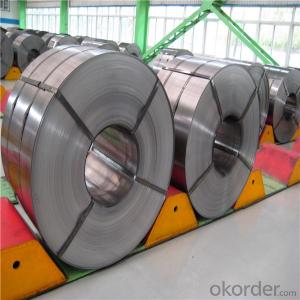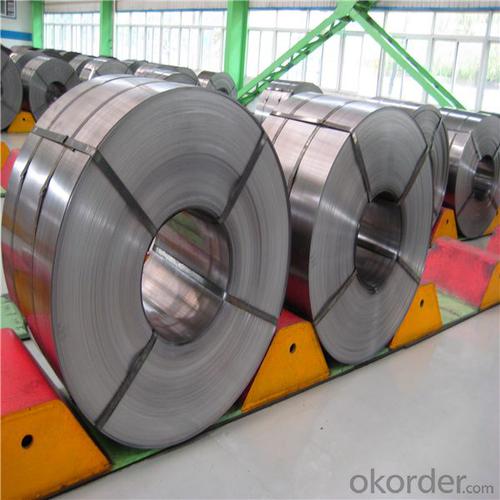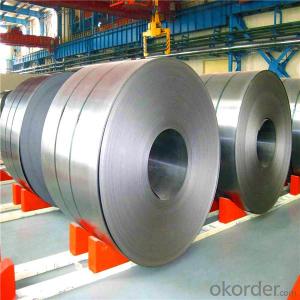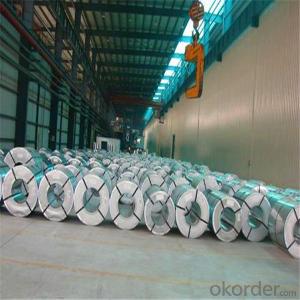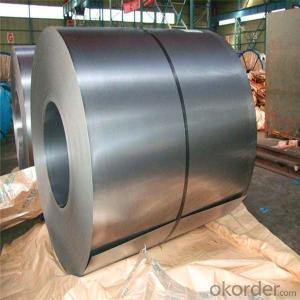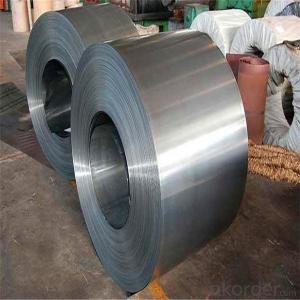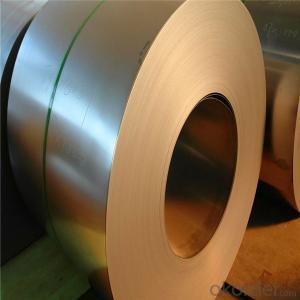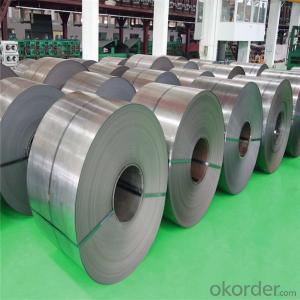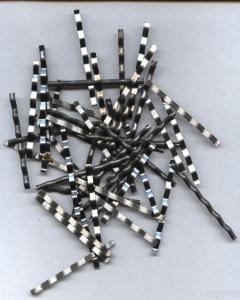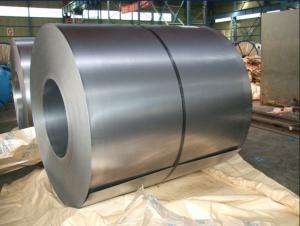Prime Quality DC01 Cold Rolled Steel Sheet/Coil
- Loading Port:
- China main port
- Payment Terms:
- TT OR LC
- Min Order Qty:
- 23 m.t.
- Supply Capability:
- 50000 m.t./month
OKorder Service Pledge
OKorder Financial Service
You Might Also Like
Specification
Prime Quality SPCC Cold Rolled Steel Sheet/coil
Widely used to appliance,automobile industry or other decoration usage.
Certificate: ISO9001
Packing Details: Wrapped by water proof paper and plastic film.Covered with iron sheet,strapped by steel strips to protect the damage under transportation.
Details please check following format
Brief Introduction
Cold rolled steel coil is steel that has been worked below its recrystallization temperature by passing it between a pair of rollers. Recrystallization temperature is the temperature at which grains in the lattice structure of the metal have been rearranged, leaving it free of strain and deformations. Cold rolled steel coil is pre-treated before being cold rolled with a process known as pickling, which uses strong acids to remove scale and other impurities. The cold rolled steel coil is then passed through rollers to reduce its thickness. Most cold rolling takes place in multiple passes and as the size of the cold rolled steel coil is further reduced, its strength and hardness both increase, but its ductility decreases. After cold rolling, heating the metal up in a process known as annealing can restore some of its ductility. The final cold rolled steel coil may be manufactured in the form of sheets, strips, bars, or other forms.
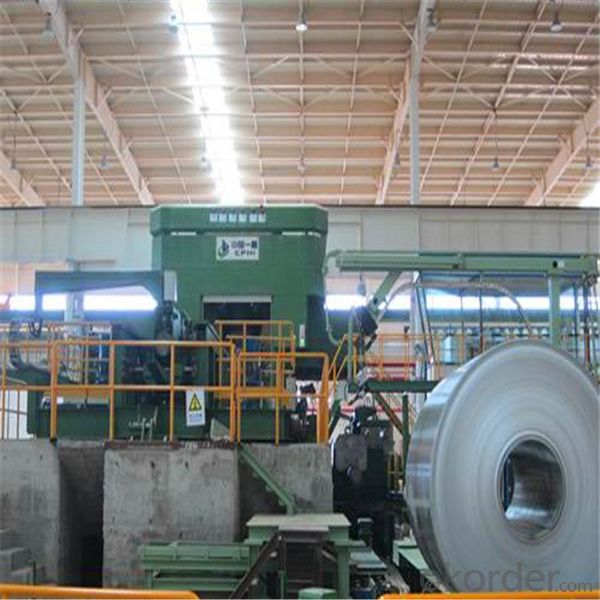
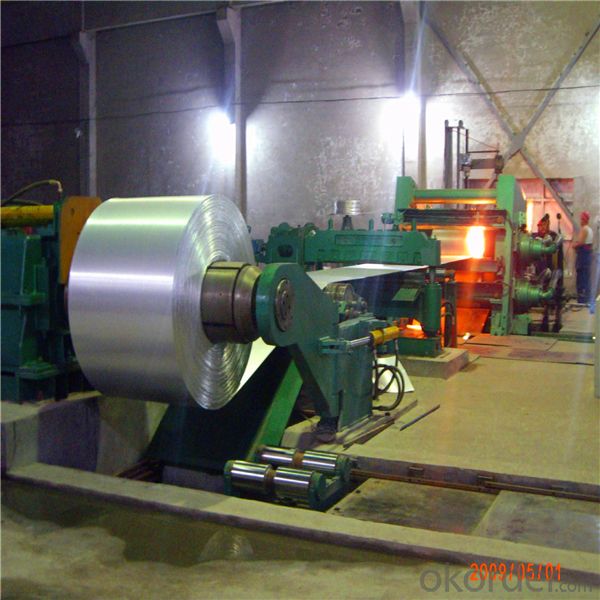
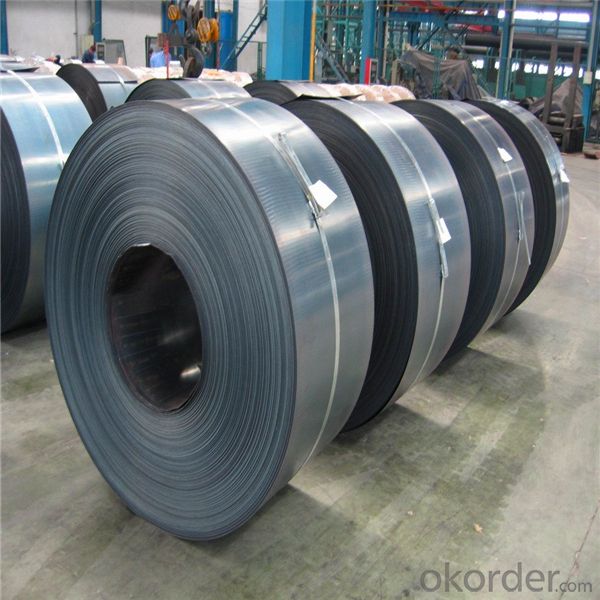
- Q: What are the different types of steel sheets and their uses in the packaging industry?
- There are several types of steel sheets used in the packaging industry, including tinplate, galvanized steel, and stainless steel. Tinplate is a thin steel sheet coated with a layer of tin, making it highly resistant to corrosion. It is commonly used for making food cans and beverage containers due to its ability to preserve the contents' freshness. Galvanized steel sheets are coated with a layer of zinc, which provides excellent rust resistance. They are often utilized for packaging materials that require durability and strength, such as metal drums and pails. Stainless steel sheets, known for their corrosion resistance and hygienic properties, are used in the packaging industry for applications like pharmaceutical packaging, cosmetic containers, and high-end food packaging.
- Q: How are steel sheets used in the manufacturing of solar panels?
- Steel sheets are not directly used in the manufacturing of solar panels. Instead, they are often used as structural components in the support structures for solar panels, such as mounting frames or racks. These steel sheets provide a sturdy and durable framework to hold the solar panels in place and ensure their optimal positioning for maximum sunlight exposure.
- Q: How are steel profiles used in the fabrication of conveyor systems?
- Steel profiles are commonly used in the fabrication of conveyor systems as they provide strength, durability, and versatility. These profiles are used to construct the framework, support structure, and various components of the conveyor system, such as the conveyor belt, rollers, and guides. The steel profiles are carefully designed and fabricated to ensure the conveyor system can handle the required load capacity and operate smoothly. Additionally, steel profiles can be easily customized and assembled to meet specific conveyor system requirements, making them an ideal choice for efficient and reliable material handling.
- Q: Can steel be recycled?
- Yes, steel can be recycled. In fact, steel is one of the most recycled materials in the world due to its durability and potential for infinite reuse without losing its properties.
- Q: What are the different types of steel coils and their applications?
- There are various types of steel coils available, including hot-rolled, cold-rolled, galvanized, and stainless steel coils. Hot-rolled coils are commonly used in construction, automotive, and machinery industries due to their strength and flexibility. Cold-rolled coils are used for applications requiring precise dimensions and a smooth surface finish, such as in the manufacturing of appliances and furniture. Galvanized coils are coated with a layer of zinc, making them corrosion-resistant and suitable for outdoor applications. Stainless steel coils are highly resistant to corrosion and heat, making them ideal for use in the food processing, medical, and chemical industries.
- Q: What are the advantages of using steel in the manufacturing of solar panels?
- There are several advantages of using steel in the manufacturing of solar panels. Firstly, steel is a strong and durable material, which ensures the longevity and reliability of the solar panels. Secondly, steel is readily available and cost-effective, making it an economical choice for mass production. Additionally, steel is highly recyclable, reducing the environmental impact of solar panel production. Lastly, steel's high thermal conductivity allows for efficient heat dissipation, preventing damage to the solar cells and ensuring optimal performance.
- Q: How is steel pipe coated for corrosion protection?
- Steel pipe can be coated for corrosion protection through various methods, including hot-dip galvanizing, epoxy coating, and polyethylene wrapping. These processes provide a barrier between the steel pipe and the surrounding environment, preventing the pipe from coming into direct contact with moisture, chemicals, or other corrosive elements that could lead to its deterioration.
- Q: What are the different types of steel rails and their applications in tram systems?
- There are various types of steel rails used in tram systems, including grooved rail, Vignole rail, and flat-bottomed rail. Grooved rail has a continuous groove along its length, allowing the tram wheels to fit securely, providing stability and preventing derailment. Vignole rail, on the other hand, has a flat bottom and is mainly used for light rail systems. Flat-bottomed rail is the most common type and is used for heavy tram systems. It provides a smooth surface for the wheels and distributes the weight of the trams evenly. Each type of rail is chosen based on the specific requirements of the tram system, including the weight and speed of the trams, as well as the terrain and environmental conditions.
- Q: What are the different types of steel wires and their uses?
- There are several types of steel wires, each designed for specific purposes. Some common types include carbon steel wire, stainless steel wire, galvanized steel wire, and spring steel wire. Carbon steel wire is versatile and used in various applications such as construction, automotive, and manufacturing. Stainless steel wire is corrosion-resistant and commonly used in industries like food processing, medical, and aerospace. Galvanized steel wire is coated with zinc for enhanced durability and is often used in fencing and electrical applications. Spring steel wire has high elasticity and is primarily used to make springs and wire forms in industries like automotive and furniture.
- Q: How is steel plate formed into complex shapes?
- Steel plate can be formed into complex shapes through various processes such as bending, rolling, and pressing. These techniques involve applying force and pressure to the steel plate, which allows it to be molded and shaped according to the desired design.
Send your message to us
Prime Quality DC01 Cold Rolled Steel Sheet/Coil
- Loading Port:
- China main port
- Payment Terms:
- TT OR LC
- Min Order Qty:
- 23 m.t.
- Supply Capability:
- 50000 m.t./month
OKorder Service Pledge
OKorder Financial Service
Similar products
Hot products
Hot Searches
Related keywords
